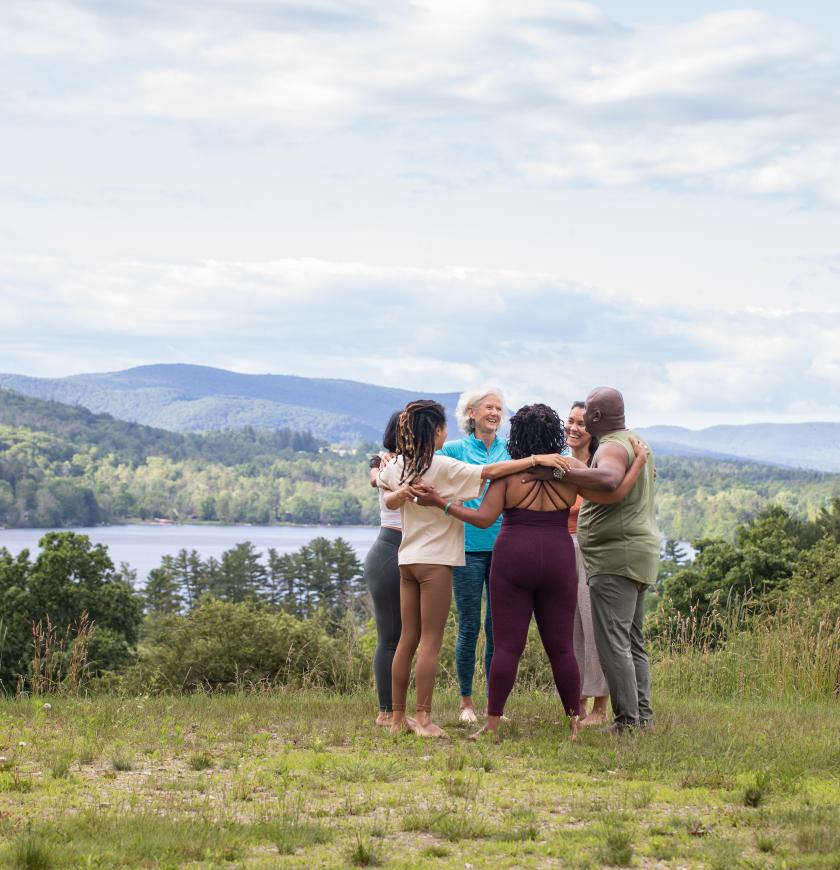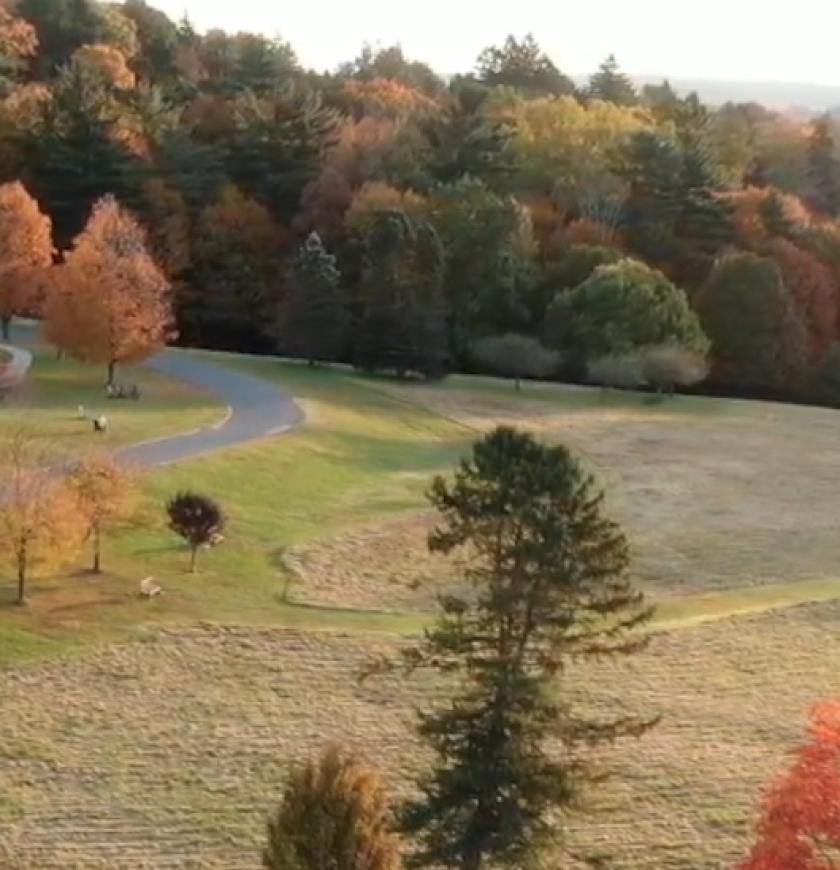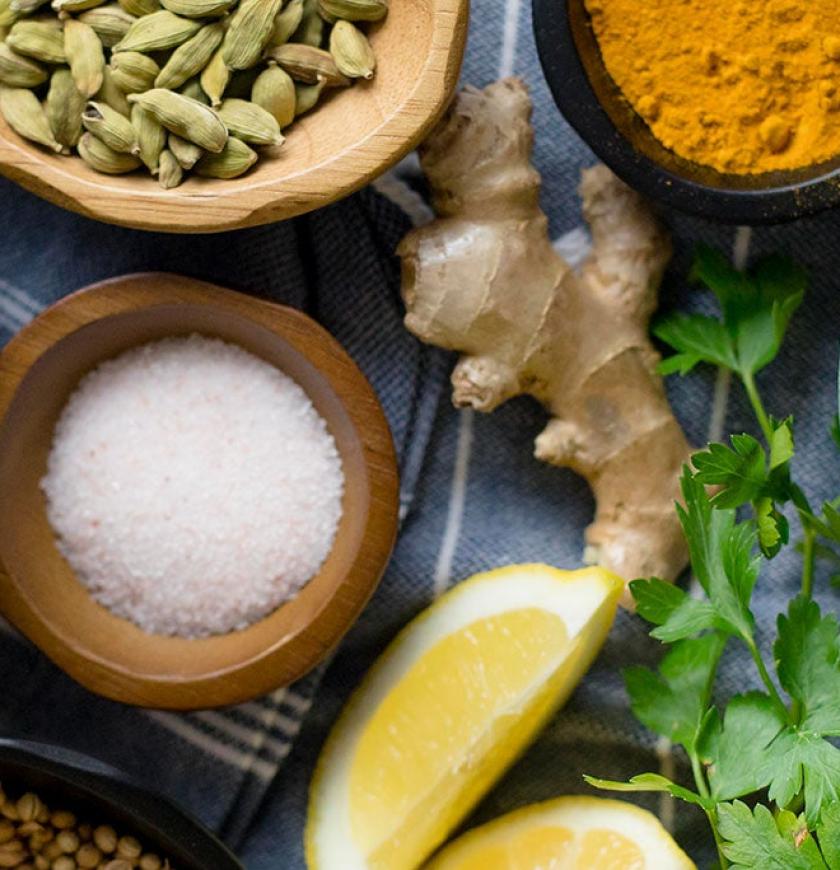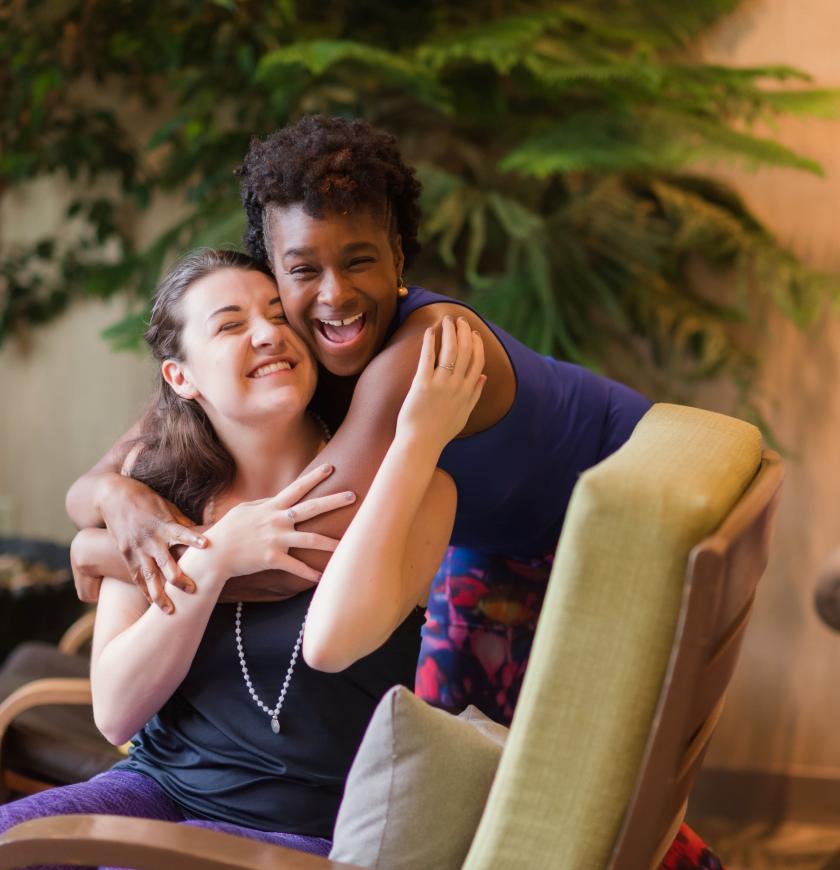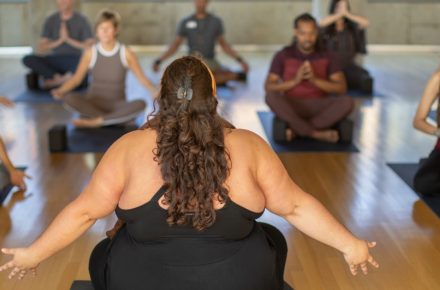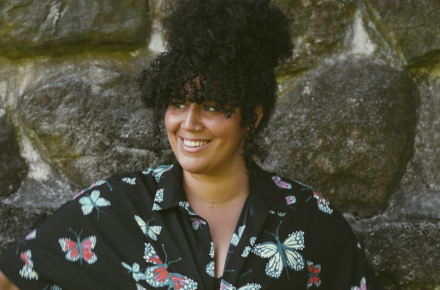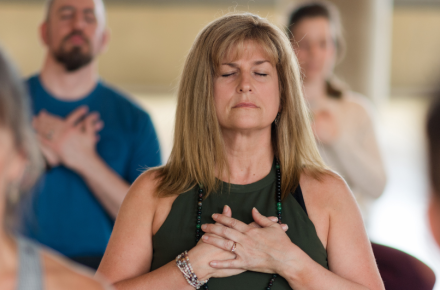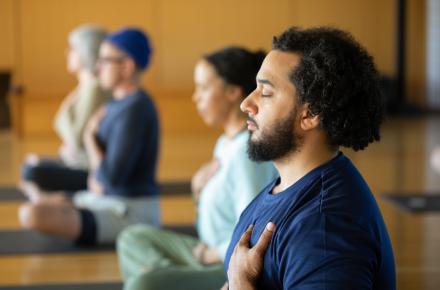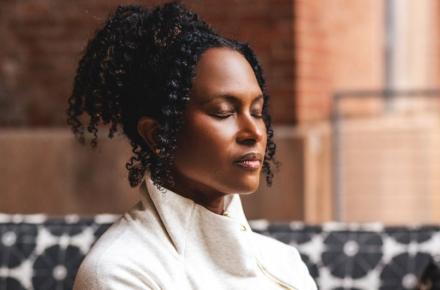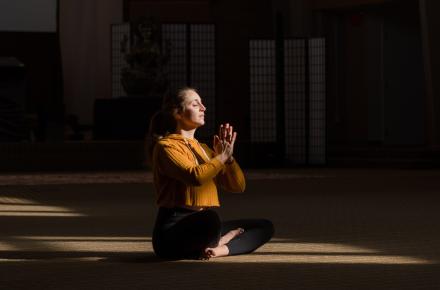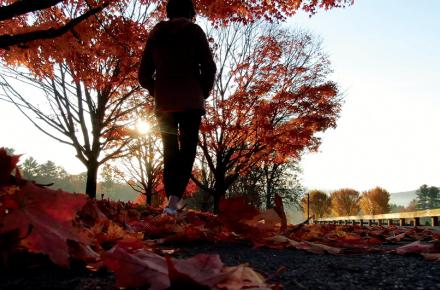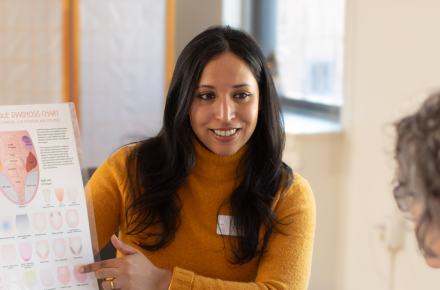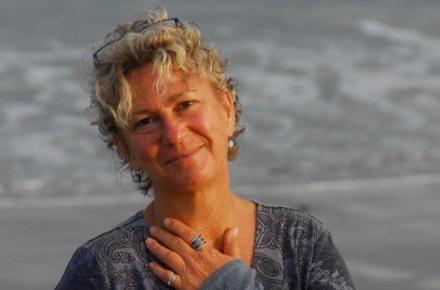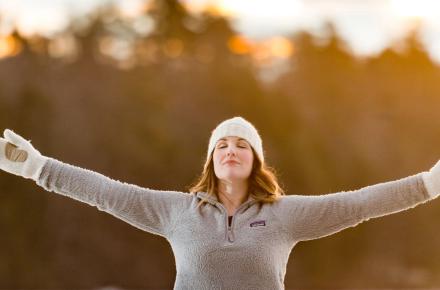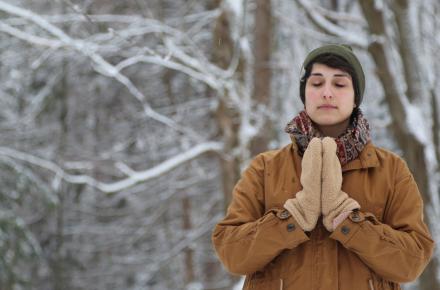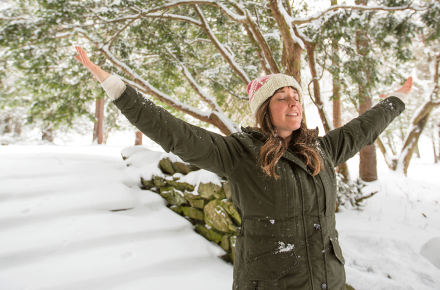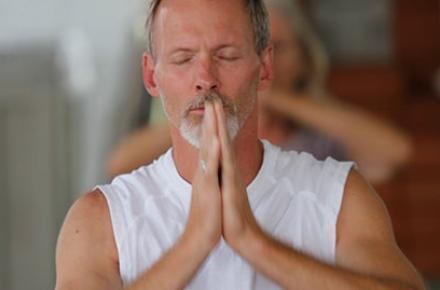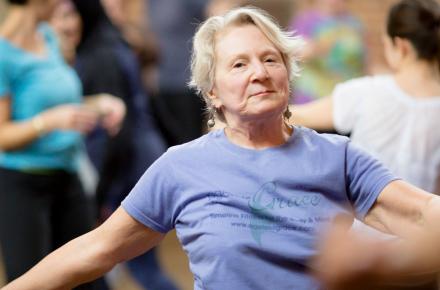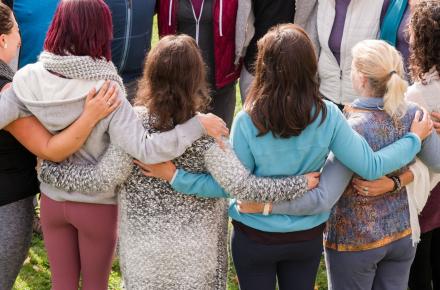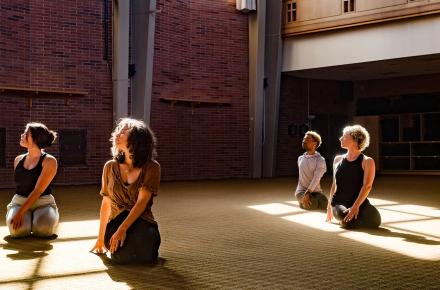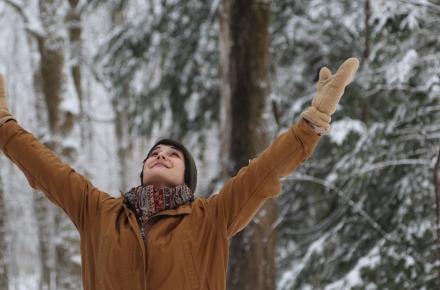Try Not to Roll Your Eyes When I Say 'Self-Care'


The term “self-care” can seem egotistical and entitled. It might conjure images of self-centered, bonbon-eating sloths. Who has time for this saccharine concept of “self-care" when there are soccer games and dirty dishes demanding attention?
It’s time for a re-branding. Let’s re-name this practice, "giving yourself a tune-up so you don't totally lose it and ruin the lives of everyone around you." That might be a little too long to catch on. I'll work on it.
For me, self-care goes completely out the window in difficult times, which is precisely when it's most necessary. Self-care isn't selfish. It's a prerequisite for living a life in which you can actually be of use to others. It's like what they tell you on the airplane: You have to put your oxygen mask on yourself before you can help someone else. If you aren’t doing enough to sustain yourself, you're useless to the rest of the world. Self-care doesn't have to be elaborate and expensive; you don't have to take yourself on a spa weekend to Santa Fe (of course if you want to, that's fantastic, and please invite me along).
Culturally, we are stuck in this mentality that being "busy" is the holy grail of personhood, so we can't possibly have time to take care of ourselves. We cling to chaos and feel worthy only if we don't have time to sleep. Why do we need to fill every second of the day with stuff? We all have a lot going on: we have jobs and families and side-hustles, Instagram accounts and appointments with the HVAC guy. But when we really look at it, some of this whirlwind might be self-imposed. We didn't have to agree to get dragged into the fights on the neighborhood board. We didn't have to hand-sew the school play costume with only recycled materials. We never wanted to do those things in the first place, but the busyness tends to make us feel important.
When people ask us to pile yet another thing onto our overloaded plate, we can remember that "no" is a complete sentence. “Busy” is not a merit badge. You are still a worthy person if you have time to take a nap on a Wednesday afternoon. We really can sit and read a book sometimes. We can stare out the window. The world will keep spinning all by itself and we'll be more grounded and useful if we take care of ourselves a little. We don't need to justify our place on the planet and remind everyone about how much is going on; you earned your worthiness just by being born. Just like everyone else.
When we ditch the drama, we have time for play. Play is not frivolous. It's hugely important to having a life that feels meaningful. Kids get this. They know that doing something just for the joy of doing it is what makes life awesome. You know what is not at all awesome? Having a meltdown over making the perfect key lime bars with the hand-squeezed key limes for the pool party. (Trust me. I've done it. Not awesome.)
You can play alone or with others. We’ve seen how vital community is—maybe you want to join a basketball team or start a book club. Find a few people who really like hula hooping or Star Wars and decide to meet once or twice a month. Creating your own playful community is a great way to increase feelings of connectedness and purpose. It doesn’t need to this big formal thing. It only needs to be intentional.
Other cultures seem to do a better job understanding the importance of downtime. The Danish concept of hygge (pronounced like "hue-gah") means "a quality of coziness and comfortable conviviality that engenders a feeling of contentment or well-being." It's about bliss, gratitude, taking pleasure in simple, gentle, warm and fuzzy things. It's well understood in Denmark that this is a required activity if we want to be productive and balanced in the rest of life. It's a way to create a sense of peace in the middle of whatever is happening, and many believe it's a major reason Danes are so happy. Relaxing isn't lazy when it's planned. So can you tell Siri to block your schedule once or twice a week for some hygge time? Here are some ideas:
- “Solvitur ambulando." It's a Latin phrase that means, “it is solved by walking.” So take a walk. Preferably with a dog (If you don't have one, animal shelters are often happy to loan you a walking companion).
- Cook your favorite dinner.
- Buy yourself flowers, or some other small treat.
- Take a bath.
- Take a nap.
- Join a sports team or hobby group.
- Sit on a park bench and watch the trees.
- Paint, draw, write, garden, make pottery—you get the idea.
- Living room dance party (I recommend Ace of Base, but you do you).
- Warm drink + fluffy socks or iced tea + barefoot in the sunshine.
- Watch something hysterical and laugh until your tummy hurts.
- Be in nature and watch a sunrise/sunset.
- Cuddle with a person or animal or warm fuzzy blanket.
- Eat an orange in the shower (seriously, if you haven’t, give it a try).
- Play a board or card game.
- Meditate.
- Read.
Excerpted with permission from Not Just Me: Anxiety, Depression, and Learning to Embrace Your Weird, © 2017, by Lisa Jakub.
